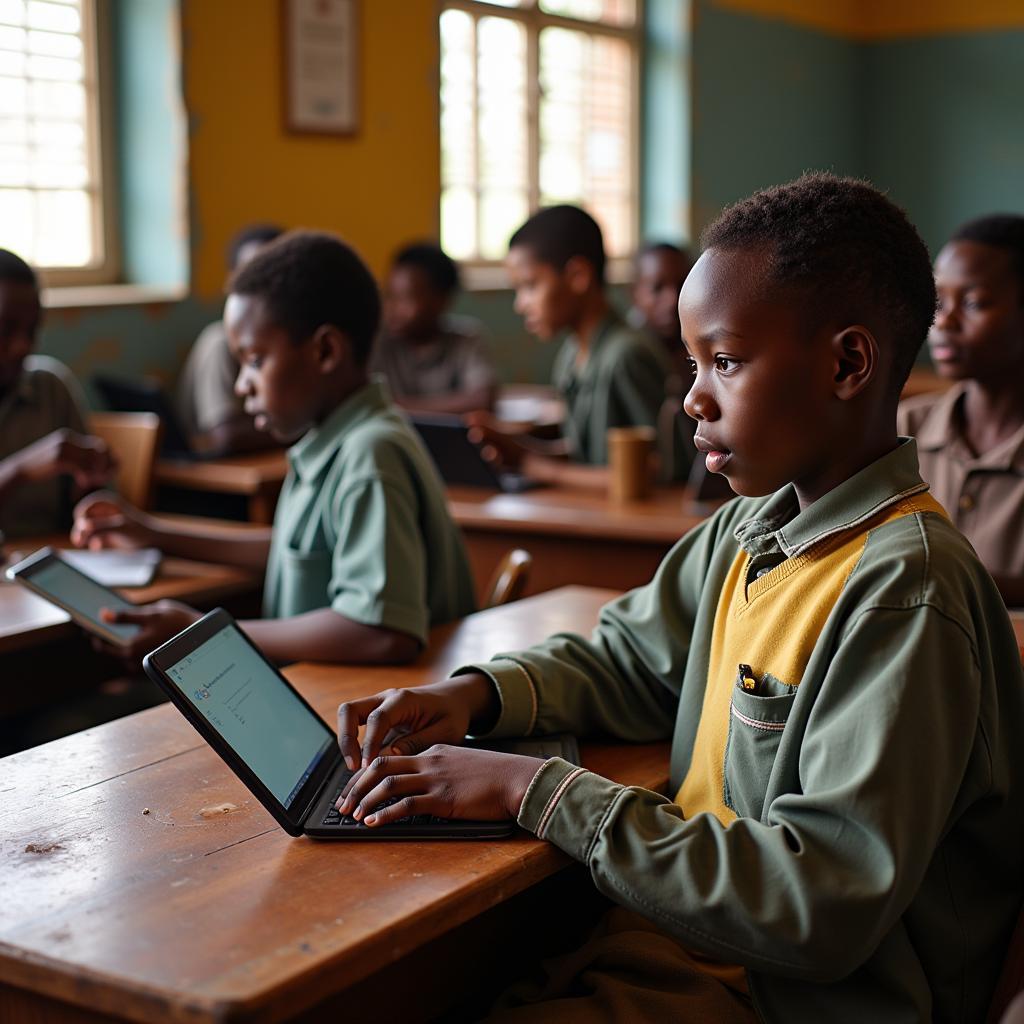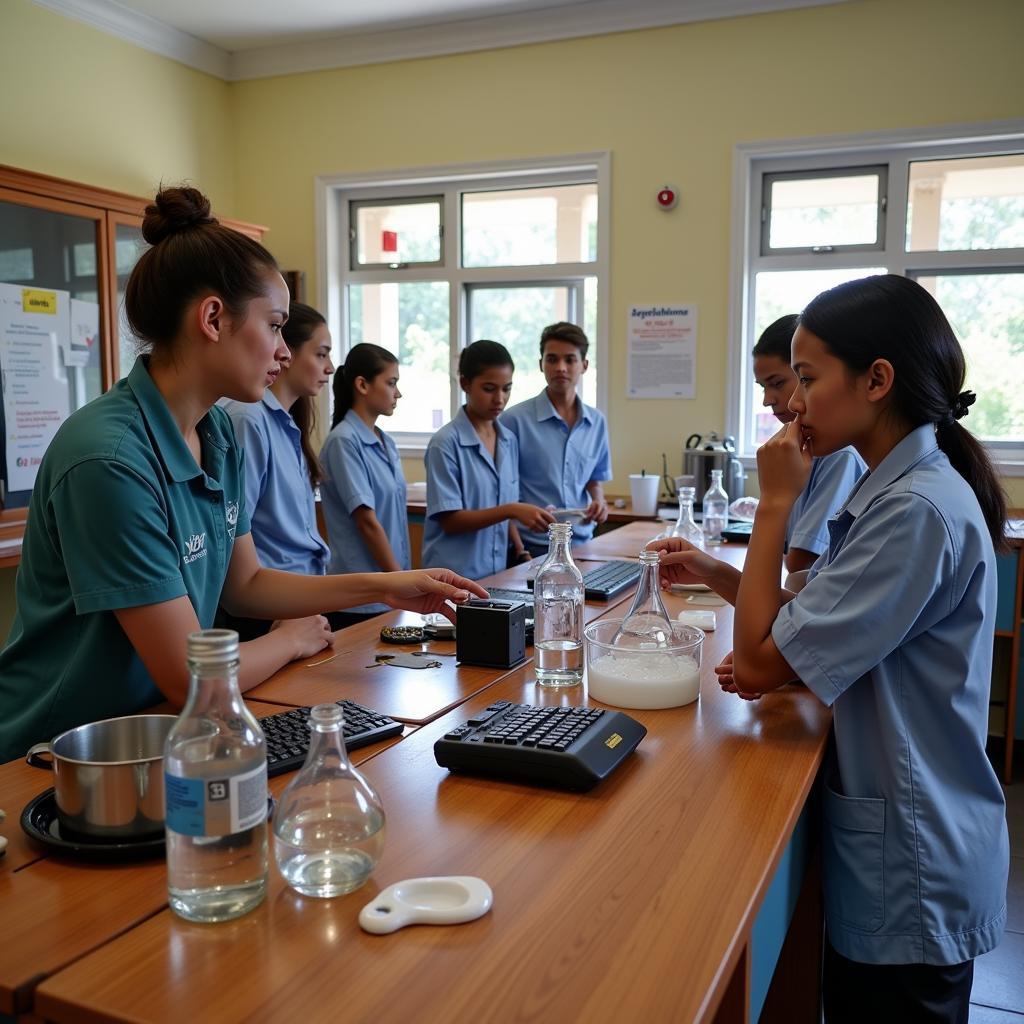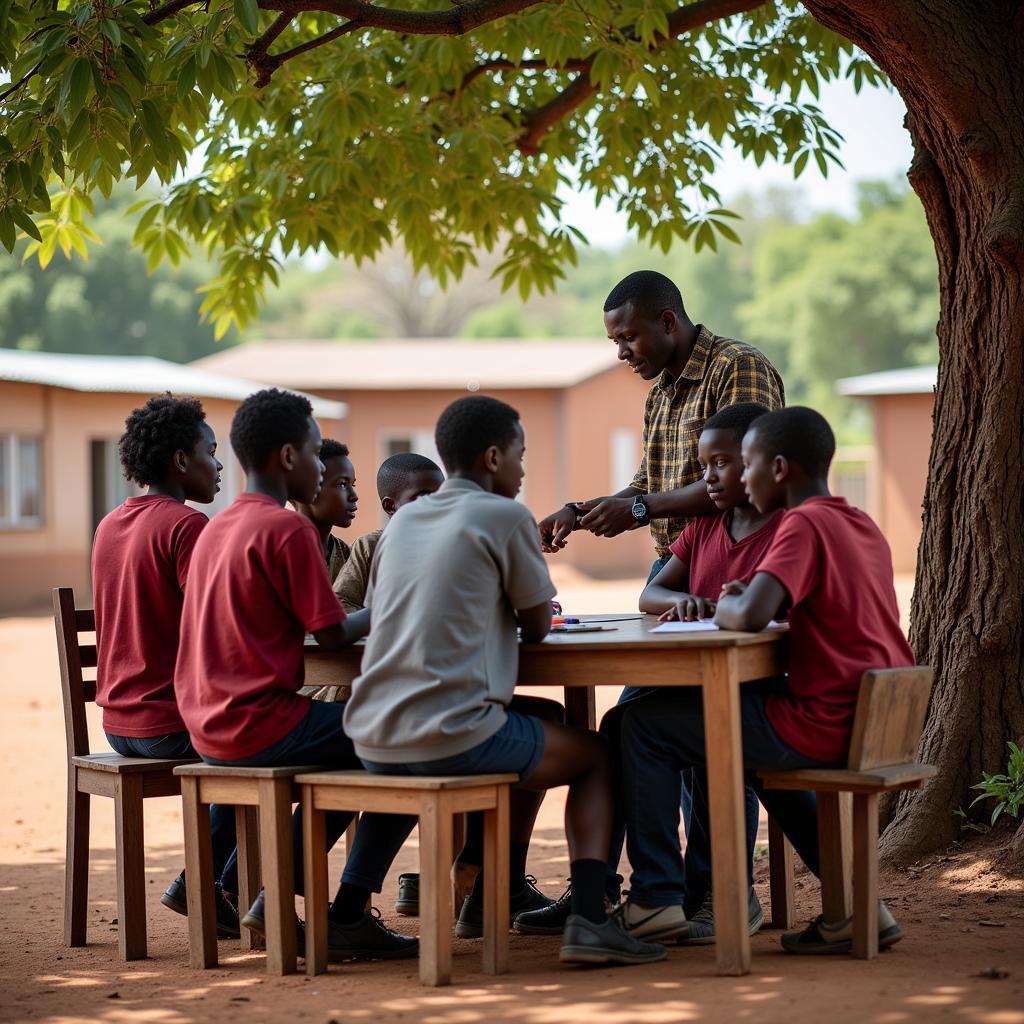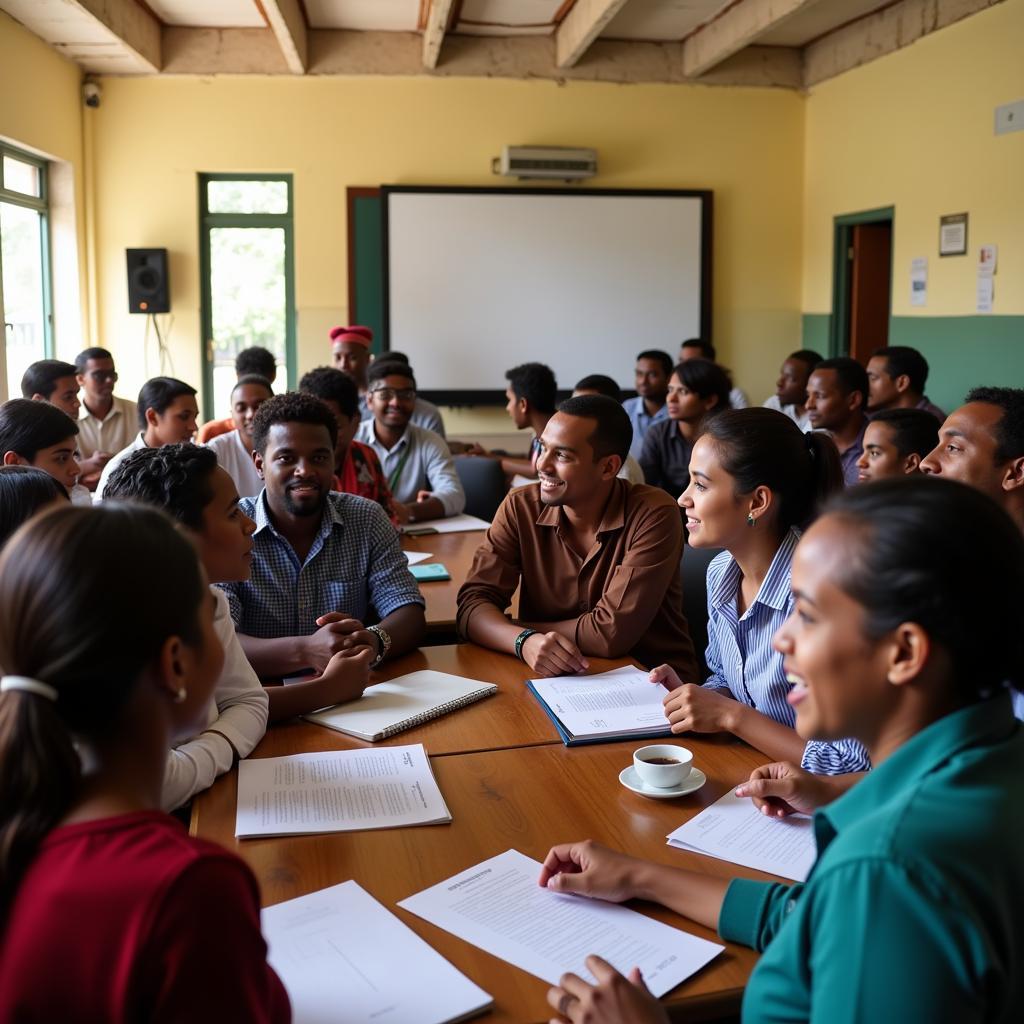African Countries with Quality Education: Investing in the Future
The pursuit of quality education is a global endeavor, and African countries are no exception. While challenges persist, the narrative of “African Countries With Quality Education” is one of progress, innovation, and a commitment to nurturing future generations. Access to quality education is not merely about increasing literacy rates; it’s about empowering individuals, fostering economic growth, and driving societal transformation across the continent.
Factors Shaping Educational Success in Africa
Several factors contribute to the rising quality of education in certain African nations. While this is not an exhaustive list, the following elements play a crucial role:
- Government Policies & Investment: Increased budget allocation towards education, coupled with targeted policies that promote access, equity, and quality, are key drivers. Countries making strides in education often prioritize infrastructure development, teacher training, and curriculum reform.
- Technological Advancements: From online learning platforms to mobile educational resources, technology is bridging gaps and expanding educational opportunities in even the most remote areas.
- Public-Private Partnerships: Collaborative efforts between governments, NGOs, and private institutions are proving instrumental in strengthening educational systems, fostering innovation, and expanding access.
- Community Engagement: Recognizing that education is a shared responsibility, many communities are actively involved in improving local schools. This can range from fundraising for resources to participating in school management committees.
 Students in Africa Utilizing Technology in Education
Students in Africa Utilizing Technology in Education
Spotlighting Excellence: Examples of African Countries Prioritizing Education
Several African nations stand out for their commitment to providing quality education. While each country has its unique approach, they all share a dedication to fostering intellectual growth and empowering their citizens through education.
Mauritius: A Beacon of Educational Development
With a literacy rate of over 90%, Mauritius boasts one of the most successful education systems in Africa. The government provides free education from primary to tertiary levels, demonstrating its commitment to investing in human capital.
Seychelles: Small Nation, Big Educational Vision
This island nation places a high premium on education, evident in its impressive literacy rate (over 95%). Seychelles has made significant strides in early childhood education, recognizing its importance as a foundation for lifelong learning.
 Modern Science Lab in Seychelles School
Modern Science Lab in Seychelles School
Botswana: Diamonds Are Not Its Only Treasure
Botswana has wisely reinvested its wealth from natural resources, particularly diamonds, into its education system. This strategic investment is reflected in its well-developed education infrastructure, qualified teachers, and strong emphasis on vocational and technical training.
South Africa: Transforming Education, Shaping the Future
Post-apartheid, South Africa has made significant strides in reforming and improving its education system. The country is focusing on addressing historical inequalities and expanding access to quality education for all, particularly for previously disadvantaged communities.
Kenya: Innovation Hub for Educational Technology
Kenya is emerging as a leader in utilizing technology to enhance education. Mobile learning platforms and digital content are playing a pivotal role in expanding access to education, particularly in remote areas. M-Pesa, Kenya’s mobile money platform, is even being used to facilitate school fee payments, making education more accessible to low-income families.
The Challenges and Opportunities Ahead
While the progress made by these and other African nations is commendable, challenges remain:
- Resource Constraints: Many countries still grapple with limited resources, impacting infrastructure, teacher training, and access to learning materials.
- Equity and Inclusion: Ensuring equal access to quality education for all, regardless of gender, location, or socioeconomic background, remains a key challenge.
- Relevance of Curriculum: Adapting curricula to meet the evolving needs of the 21st-century job market and equipping students with relevant skills is crucial.
 Interactive Learning in an Outdoor Classroom in Africa
Interactive Learning in an Outdoor Classroom in Africa
A Promising Future: Investing in Human Capital
Despite these challenges, the commitment to improving education across Africa is unwavering. The continent recognizes that investing in its people, particularly through education, is the key to unlocking its vast potential and securing a brighter future. By supporting initiatives that strengthen education systems, promote innovation, and empower future generations, we contribute to a more prosperous and equitable world.
FAQs About Education in Africa
1. What is the literacy rate in Africa?
The adult literacy rate in Africa has steadily improved and is currently around 70%, according to UNESCO. However, significant variations exist between countries.
2. What are some of the biggest barriers to education in Africa?
Obstacles include poverty, lack of infrastructure in rural areas, a shortage of qualified teachers, and persistent gender disparities.
3. How is technology being used to improve education in Africa?
Technology is transforming education through online learning platforms, mobile educational apps, and digital content, bridging gaps in remote areas and providing access to a wealth of learning resources.
4. Are there scholarships available for African students to study abroad?
Yes, numerous organizations and institutions offer scholarships to support African students seeking higher education opportunities worldwide.
5. How can I contribute to supporting education in Africa?
You can contribute by donating to reputable organizations working in the education sector, sponsoring a child’s education, or volunteering your skills and expertise.
Need Help or Have More Questions?
For assistance, call us at +255768904061, email us at kaka.mag@gmail.com, or visit us at Mbarali DC Mawindi, Kangaga, Tanzania. Our customer service team is available 24/7. You can also find more information about the population growth in Africa and the African diamond business on our website.


